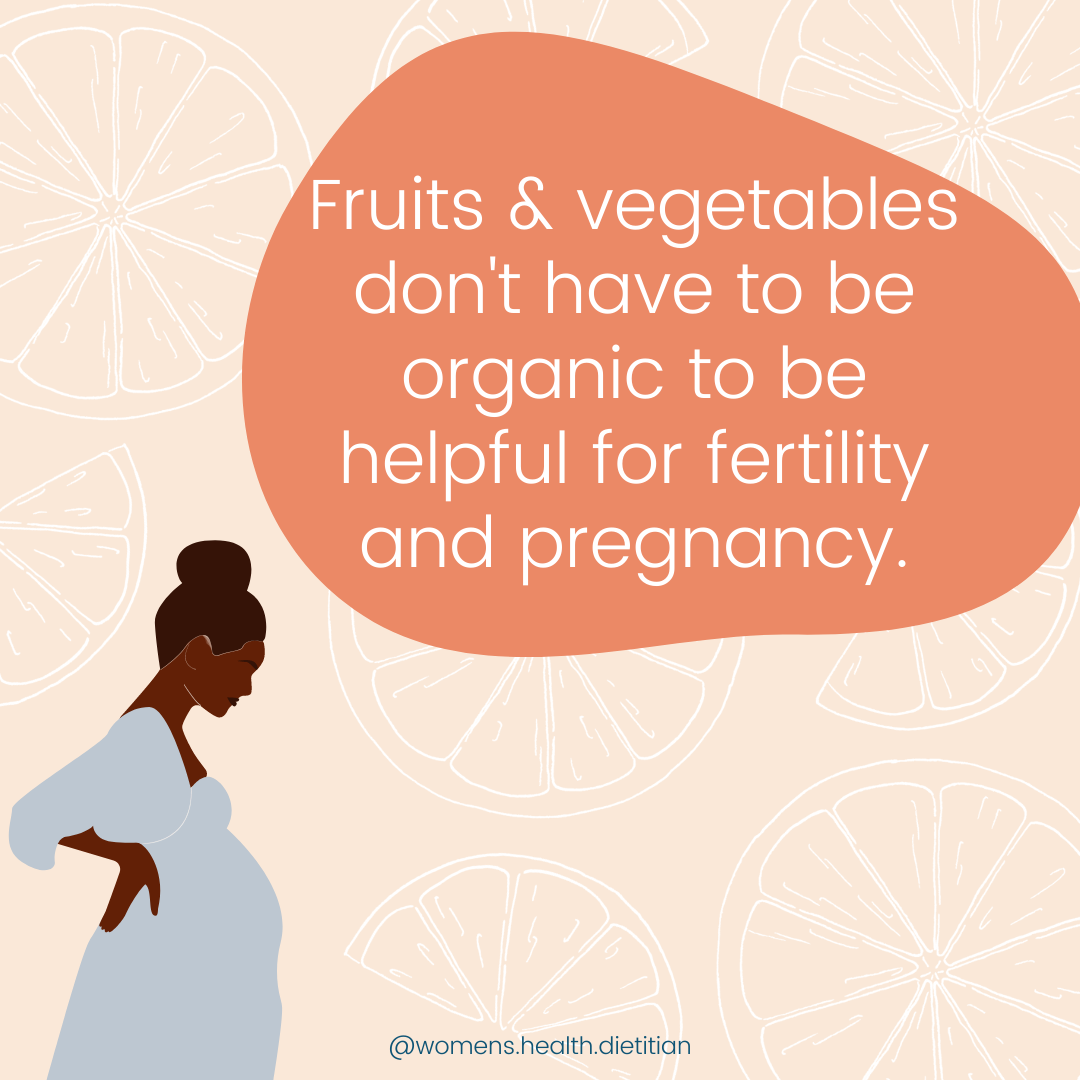Should you eat only organic food for your fertility?
What does organic mean?
The term organic seems to be thrown everywhere these days and has been deemed “superior” by our society whether it’s clothes, food, bedsheets, etc. But what does organic really mean? And is it really better than conventional?
For food to be certified as USDA organic, it must go through a long certification process that ensures farms are adhering to federal guidelines that address soil quality, animal raising practices, pest and weed control, and the use of additives. Before a farm is allowed to use the USDA certified organic label, it must go through 36 months of using organic practices and pay many fees. If you’re wanting to learn more about this process, follow this link.
USDA Organic is a costly label that many small, local farms may not be able to afford. This is true even if they are following organic guidelines, or using spot treatments instead of spraying their whole fields which still lowers pesticide content of produce. Shopping at the farmer's market can help you find produce that supports your fertility and the local economy.
Why are pesticides and fertilizers used?
The use of pesticides and fertilizers in farming is all regulated by the government. If you’re thinking, “why does our government allow this stuff in our food?”, that’s a valid question!
The EPA is in charge of pesticide regulation and they have strict rules for which pesticides are used, how much, and how often on our food. They’re also in charge of regulating fertilizer use and here is some background information on that.
Using these substances during farming allows for the produce to grow faster and bigger to sustain our growing population, but it also ensures affordability of the produce. Organic foods are often more expensive because of the expensive process of becoming certified organic, not because the food is “better”. There are many rules and regulations in place to make sure pesticides and fertilizers are used in a safe way so that farmers can grow enough produce to sustain our population.
So just because you don’t see a USDA certified organic label doesn’t mean the produce 1) wasn’t farmed using organic practices and 2) isn’t using safe guidelines for pesticide and fertilizer use.
Do pesticides affect fertility?
Now that we know what organic means and the regulations behind pesticide and fertilizer use in farming produce, let’s talk about it with respect to fertility.
One study showed that eating high pesticide produce may impact outcomes for those seeking fertility treatment, but this does not outweigh the overall benefits of including adequate fruits and vegetables daily. “Okay McKenzie, what does that mean though??” This means that reducing or eliminating produce to avoid pesticides would be more harmful for fertility than eating produce farmed using pesticides.
Another study examined women who were attempting to conceive without using fertility treatments. They found that a higher intake of produce, regardless of pesticide residue, was associated with improved fecundability (the probability of achieving a pregnancy within one menstrual cycle). So again, fruits and vegetables provide such great nutrients that support fertility and pregnancy -- they don’t have to be organic.
So now what?
With all that said, if you can afford to buy organic produce, that is wonderful! If you cannot, you are not alone and there’s nothing at all wrong with buying conventionally farmed produce.
What we’ve learned today is that the amount, or lack thereof, of pesticide residue on produce, isn’t as important as the adequate intake of fruits and vegetables for fertility.
If you want to read more about why you need fruit for fertility check out this blog post. Or check out this blog post for tips to add in vegetables for fertility.
As always, if you’re looking for support in intuitive nutrition for fertility and pregnancy, I’d love to support you. Apply to work with me for 1:1 coaching, or check out my new online course and community, Fully Nourished Pregnancy! This program helps you make empowered decisions when it comes to all things food and nutrition in pregnancy, and supports you in building a healthy relationship with food in the process. Click here for more info!


